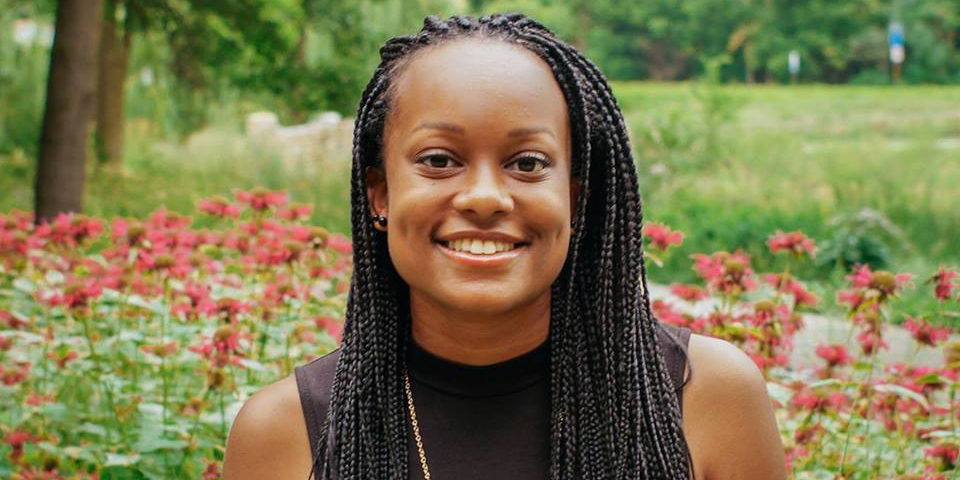A Q&A with recent UMN grad Destiny Weaver

Since 2015, the MnDRIVE Initiative has partnered with the Louis Stokes North Star STEM Alliance (LS-NSSA) to connect undergraduates with research opportunities in bioremediation, neuromodulation, robotics, and food security. Recent UMN graduate and neuroscience major Destiny Weaver sat down with Kyle Wong to talk about the LS-NSSA and her experience as a MnDRIVE scholar studying deep brain stimulation.
How did you hear about LS-NSSA?
I first heard about the alliance freshman year during Welcome Week, or maybe at The Multicultural Center for Academic Excellence (MCAE) kickoff. As a result, I began looking into the program and ended up working for them. Students would go to conferences to present their research and network with professionals. So, I helped out with documentation for those things and even setting up the travel, keeping track of the events, and whatnot.
Tell me about your research experience?
I was in Professor Colum MacKinnon's Movement Disorders Laboratory. In fact, I'm still there. My project last summer was concerned with assessing a neurosurgical procedure called deep brain stimulation (DBS). We assessed how DBS affected gait disturbances in Parkinson's patients, and I assisted with data collection. We would do a series of quantitative gait assessments to measure the velocity, stride length, cadence, etc., using an electronic walkway. I'd analyze the data and look at differences between visits because patients would come in several times with different DBS settings. I’m preparing for the MCAT this year and plan to continue working
for Professor MacKinnon until I matriculate into medical school, hopefully, in 2022.
Was this your first research experience?
As a junior, I received funding from the Undergraduate Research Opportunities Program (UROP) and work in Professor Nicola Grissom's NeuroGOAL Lab. I worked in that lab for a year, but that was basic research with mice which was much different than the clinical translational research.
How did your experience with the LS-NSSA program influence your career goals?
I had been interested in medicine and a career in research since I first started doing research at the university. I was interested in applying for an MD-PhD program. Writing a research proposal at the end of the summer to show how my research could be continued confirmed my passion and desire to become a physician-scientist. Being an MD-PhD isn't just about patient care. It's about research. So yes, I would definitely say that the program helped.
Do you think there are advantages to conducting research through a program Like LS-NSSA rather than reaching out directly to a lab?
Yes, I think the career and academic development opportunities are a huge advantage. In labs, you learn a lot of things, but you may not be developing your communication and professional skills. The Q&A panel, which allowed me to hear from grad students and specifically students of color, was also important. I learned about being a grad student, heard narratives of navigating one's marginalized identity while in a predominately white field, and learned about the importance of resilience. So yes, I think that doing research through a program like LS-NSSA and having an organization with programming makes a difference.
What would you tell other students interested in research that might benefit from NSSA?
I would tell them not to get too overwhelmed. It can be scary for a lot of people. Do your best not to get intimidated. Things will work out if you keep going forward and pushing through. And I would also say keep an eye out for new opportunities.
This interview was edited for brevity.